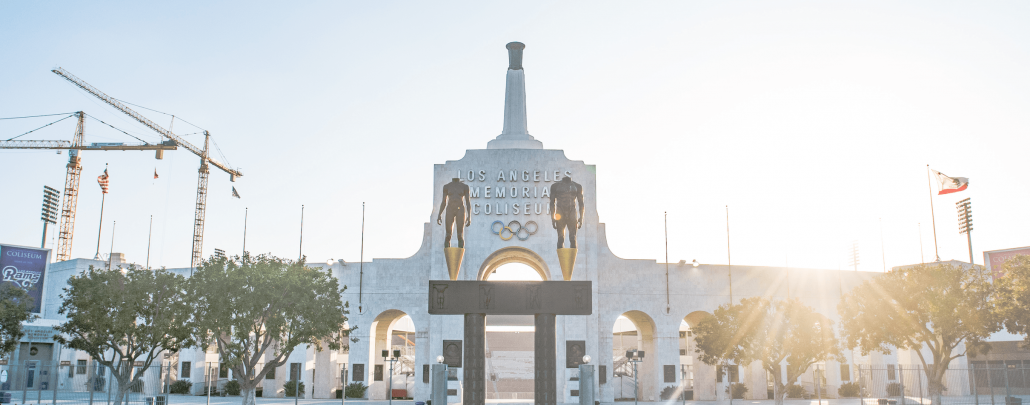Gov. Gavin Newsom signs Fair Pay to Play Act

California Gov. Gavin Newsom signed a bill Monday that will grant California’s college athletes the ability to be compensated for the use of their name, image or likeness. The bill will take effect Jan. 1, 2023.
The legislation is set to give student-athletes the ability to hire agents and sign endorsement deals, which is strictly prohibited under current NCAA regulations. It also forbids universities from banning these paid athletes.
“Colleges reap billions from student athletes but block them from earning a single dollar,” Newsom tweeted after signing the bill. “That’s a bankrupt model.”
Earlier this month, the NCAA threatened to bar 58 California collegiate athletic programs from competing should Newsom sign the bill into law, arguing that a financial incentive would give these programs a leg up in recruiting athletes. Some of the country’s top competitors — including USC, UCLA, Stanford and Cal — would be the victims of this proposed ban.
However, the version of the bill passed Monday states that the NCAA cannot bar California schools from competition based on the compensation of their student-athletes.
Newsom said the bill may prompt other states to pass similar legislation, which could force the NCAA to change its regulations on amateurism.
Conversely, the NCAA released a statement Monday that it recognizes the need to revise its current policy, but that the California bill is the wrong way to go about making these changes.
“As a membership organization, the NCAA agrees changes are needed to continue to support student-athletes, but improvement needs to happen on a national level through the NCAA’s rules-making process,” the statement read. “Unfortunately, this new law already is creating confusion for current and future student-athletes, coaches, administrators and campuses, and not just in California.”
The University issued a statement Monday echoing the NCAA’s sentiment.
“We agree it is crucial to have a serious conversation on the appropriate manner in which student-athletes can license their name, image and likeness for commercial gain,” the statement read. “We also continue to believe strongly that a national framework is needed to address those issues to ensure our student-athletes are treated fairly and do not face a potential ban from NCAA competition.”
The University also wrote in its statement that it is concerned about whether the athletes’ eligibility to compete will be compromised after the bill takes effect.
“Without future legislative updates, we are concerned that our student-athletes will lose their ability to compete, and recruitment at California universities will suffer significantly,” the University wrote.
Newsom signed the bill on NBA star Lebron James’ talk show “The Shop: Uninterrupted.”
James, who went professional out of high school, has been a staunch supporter of paying athletes whose sports generate immense revenue for their schools.
“NCAA, you got the next move,” James wrote on Instagram. “We can solve this for everyone!”
The law may be challenged by the NCAA before its 2023 introduction. The organization has hinted that it may take the issue to the courts, and an argument could be made given Congress’ authority to oversee interstate commerce.
“As more states consider their own specific legislation related to this topic, it is clear that a patchwork of different laws from different states will make unattainable the goal of providing a fair and level playing field for 1,100 campuses and nearly half a million student-athletes nationwide,” the NCAA wrote in the statement.

